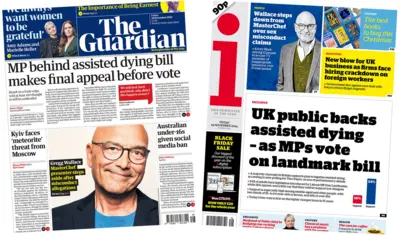We've updated our Privacy and Cookies Policy
We've made some important changes to our Privacy and Cookies Policy and we want you to know what this means for you and your data.
Scottish company insolvencies expected to rise steeply
Image source, Getty Images
- Author, Douglas Fraser
- Role, Business and economy editor, Scotland
The number of Scottish companies facing insolvency is expected to rise steeply as government loans have to be paid.
It comes despite restrictions on the economy being relaxed.
R3, the trade body for insolvency and restructuring accountants, said the first quarter of this year has seen a sharp drop in companies and individuals becoming bankrupt.
Corporate insolvencies in January to March were down 31% on the preceding quarter.
The figure was 63% lower than the first quarter of last year.
Personal bankruptcies and the procedure known as protected trust deeds is down 19% on the end of 2020 and down by 47% compared with the pre-pandemic start of 2020.
Tim Cooper, chair of R3 in Scotland, said companies are "in a form of suspended animation".
He said: "This cannot last forever, and it is clear that there are many businesses whose entire operating model has been holed below the waterline by the pandemic - at some point, they are very likely to sink".
He said disruption to the operation of civil courts is one reason why insolvency proceedings have not gone ahead.
At least as significant has been the support for firms in loans and grants, and furlough payments for staff.
Mr Cooper said: "We now have the end points in sight for all these support mechanisms, meaning that many company directors have some serious planning to do if they want to be able to meet their financial obligations over the coming year.
"This will be an especially acute point for any companies which have taken on Covid-related government loans, with repayments starting a year after they were first taken out - which will be right about now for many businesses."
R3 sees the opening up of sections of the economy which were forced to close as a lifeline to many companies.
However, inflation is ticking up, which could erode budgets, including those on furlough.
Top Stories
More to explore
Most read
Content is not available








